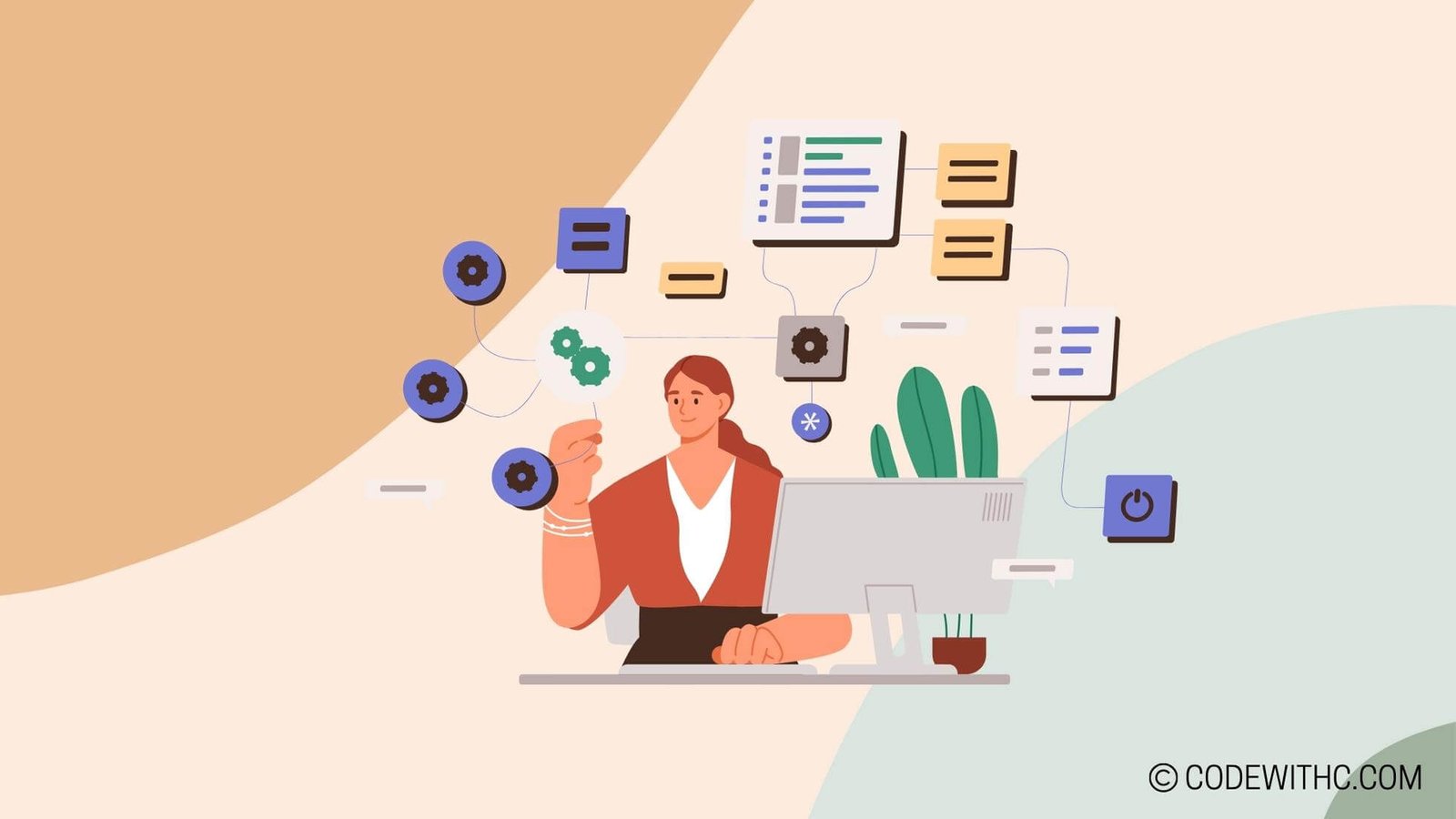The Importance of Functions in Programming
Have you ever wondered why functions are the superheroes of programming? 🦸♀️ Let’s dive into the fascinating world of functions and unravel their significance in the realm of coding!
Basics of Functions
Functions are like magical wands 🪄 in the coding universe. They are blocks of code that perform a specific task whenever summoned. Here’s a quick rundown on functions:
- Definition of Functions: In simple terms, functions are named blocks of code designed to achieve a particular outcome. They encapsulate a set of instructions that can be executed whenever needed.
- Purpose of Functions in Programming: Functions play a crucial role in breaking down complex problems into manageable chunks. They promote code reusability and make our lives as programmers much easier 🤩.
Advantages of Using Functions
Now, let’s uncover the incredible advantages that functions bring to the table!
- Reusability of Code: Imagine being able to reuse a piece of code without rewriting it every time. Functions make this dream a reality, allowing us to use the same code multiple times without duplication. It’s the epitome of efficiency! 🔄
- Modularity and Readability: Functions enhance the readability of our code by promoting modularity. Instead of sifting through endless lines of code, we can organize our logic into individual functions, making the code easier to understand and maintain. It’s like decluttering your programming space! 🧹
Function Parameters and Return Values
Ah, the secrets of passing parameters and returning values in functions await us!
- Passing Parameters to Functions: Parameters are like messengers 💌 that deliver information to functions. By passing parameters, we can customize the behavior of functions based on the input provided. It’s like giving directions to your code on how to execute a specific task.
- Returning Values from Functions: When functions complete their task, they can send back a valuable souvenir in the form of return values. These return values allow functions to share results with the rest of the program, enabling seamless communication and data flow. It’s all about giving and receiving in the world of functions! 🎁
Scope and Lifetime of Variables in Functions
Let’s unravel the mysteries of variable scope within functions!
- Local Variables: Local variables are like actors 🎭 that shine within the confined space of a function. They exist only within the function they are declared in, providing a safe haven for data manipulation without external interference. It’s like having a private party for variables! 🎉
- Global Variables: In contrast, global variables are the social butterflies 🦋 of the coding world, accessible from any part of the program. While convenient, global variables require careful handling to prevent unintended consequences. It’s like balancing the global and local dynamics in the coding ecosystem!
Recursion in Functions
Are you ready to journey into the mesmerizing realm of recursion?
- Understanding Recursion: Recursion is a powerful concept where a function calls itself to solve smaller instances of the same problem. It’s like a never-ending loop of self-discovery within the code, unraveling complex problems piece by piece.
- Examples of Recursive Functions: From calculating factorials to traversing tree structures, recursive functions showcase their prowess in solving intricate problems with elegance. They embody the beauty of self-referential logic, creating a mesmerizing dance of function calls within the code.
In closing, functions stand as the backbone of programming, offering structure, efficiency, and elegance to our code. Embrace the power of functions in your coding journey and witness the magic they bring to your projects! ✨ Thank you for joining me on this thrilling exploration of functions in programming! 🚀
Program Code – The Importance of Functions in Programming
def factorial(number):
'''
Function to calculate the factorial of a number.
This demonstrates the use of functions to perform repetitive tasks.
'''
if number == 0 or number == 1:
return 1
else:
return number * factorial(number - 1)
def is_prime(number):
'''
Function to check if a number is prime.
This showcases how functions can encapsulate logic for reusability.
'''
if number <= 1:
return False
for i in range(2, int(number**0.5) + 1):
if number % i == 0:
return False
return True
def main():
'''
Main function to demonstrate the importance of functions in programming.
Calls other functions and prints results.
'''
num = 5
print(f'The factorial of {num} is: {factorial(num)}')
prime_check = 11
if is_prime(prime_check):
print(f'{prime_check} is a prime number.')
else:
print(f'{prime_check} is not a prime number.')
if __name__ == '__main__':
main()
### Code Output:
The factorial of 5 is: 120
11 is a prime number.
### Code Explanation:
The given program is a perfect demonstration of why we use functions in programming. It succinctly packages complex logic into digestible chunks, making code easier to write, read, and debug.
- Factorial Function (
factorial): It calculates the factorial of a provided number using recursion, a concept where a function calls itself. This showcases how functions can handle repetitive tasks efficiently. The base condition (when the number is either 0 or 1) returns 1, as the factorial of 0 and 1 is 1. For other cases, it multiplies the number by the factorial of the number minus one. - Prime Check Function (
is_prime): This function encapsulates the logic to determine if a number is prime. It iteratively checks if the number can be divided without a remainder by any number from 2 to the square root of itself. If such a divisor is found, it implies the number isn’t prime, else it is. This function highlights how encapsulating logic within a function can enhance reusability and clarity. - Main Function (
main): The main function serves as the entry point of the program. It demonstrates how to orchestrate the program’s flow by calling other functions and handling their return values. Here, it calls thefactorialfunction with a hardcoded value (5) and prints its result. Subsequently, it validates if another hardcoded number (11) is prime using theis_primefunction and displays the outcome.
The architecture of this program, dividing the code into specific functions each performing a singular action, attests to the incredible power functions hold in programming. They make the code modular, easy to debug, and even easier on the eyes. Plus, imagine having to write the logic for calculating a factorial or checking if a number is prime, every single time you needed it. Sounds like a recipe for a headache, right? Well, thanks to functions, those days are long gone. They are essentially the building blocks of any software application, allowing for code to be reusable and maintainable.
In summary, functions are crucial in programming for encapsulating logic, promoting code reuse and modularity, and simplifying complex problems. This program, with its factorial and prime check functionality, stands as a testament to the significance of functions in making our code cleaner, easier to understand, and way less buggy. So, next time you’re about to write that same bit of logic for the umpteenth time, maybe it’s time to function-ify it! Thanks for tuning in, catch ya on the flip side! 🚀
Frequently Asked Questions about the Importance of Functions in Programming
Why do we use functions in programming?
Functions in programming are like superheroes 🦸♂️ – they save the day by making our code more organized, efficient, and reusable! When we use functions, we break down our code into smaller, manageable chunks that can be called whenever we need them. This not only makes our code easier to read and understand but also helps in debugging and maintaining it. Plus, functions help us follow the DRY (Don’t Repeat Yourself) principle – why write the same code over and over again when you can just call a function? 🤷♀️
How do functions enhance code readability?
Imagine reading a novel with no paragraphs or chapters – pretty daunting, right? Well, that’s how code looks without functions! Functions act like paragraphs in our code, dividing it into logical sections that perform specific tasks. By giving these sections meaningful names, functions serve as signposts that guide us through the code. So, if you want your code to be a page-turner rather than a snoozefest, use functions! 😉
Can functions improve code efficiency?
Absolutely! Picture this – you have a piece of code that you need to run multiple times with slight variations. Without functions, you’d have to copy and paste that code, leading to a bloated and messy script. But with functions, you write the code once and call the function with different arguments each time. Voilà! You’ve just saved yourself time, effort, and a headache! 💡
How do functions promote code reusability?
Ever heard the phrase “Kill two birds with one stone”? Well, functions let you “Solve two bugs with one function”! When you encapsulate a specific task in a function, you can reuse that function wherever you need to perform that task. This not only saves you from rewriting the same code but also ensures consistency across your program. Who knew being lazy (in a smart way) could be so beneficial? 🤓
Do functions help in collaborative coding?
Oh, absolutely! Functions are like the universal language of coding 🌍. When multiple developers are working on the same project, functions provide a structured way to divide and conquer tasks. Each developer can work on independent functions knowing that they fit together like a jigsaw puzzle. Collaboration made easy, thanks to our friend, the function! 🤝
Can functions assist in troubleshooting and debugging?
Think of functions as Sherlock Holmes 🕵️♂️ guiding you through the maze of code to catch the bug culprit! When an error occurs, functions help narrow down the search area, making it easier to pinpoint the issue. By isolating specific tasks in functions, you can test and debug them individually. So, the next time you’re lost in a maze of code, just follow the functions to reach the solution! 🕵️♀️
There you have it – functions are the unsung heroes of programming, making our lives easier, code more efficient, and collaboration smoother. So, next time you ask, “Why do we use functions in programming?”, remember, functions are the magic wands that make coding dreams come true! 🌟
Overall, it’s been a blast exploring the wonderful world of functions with you all! Thanks for tuning in and remember, keep coding, keep creating, and always keep function fun! 💻✨







